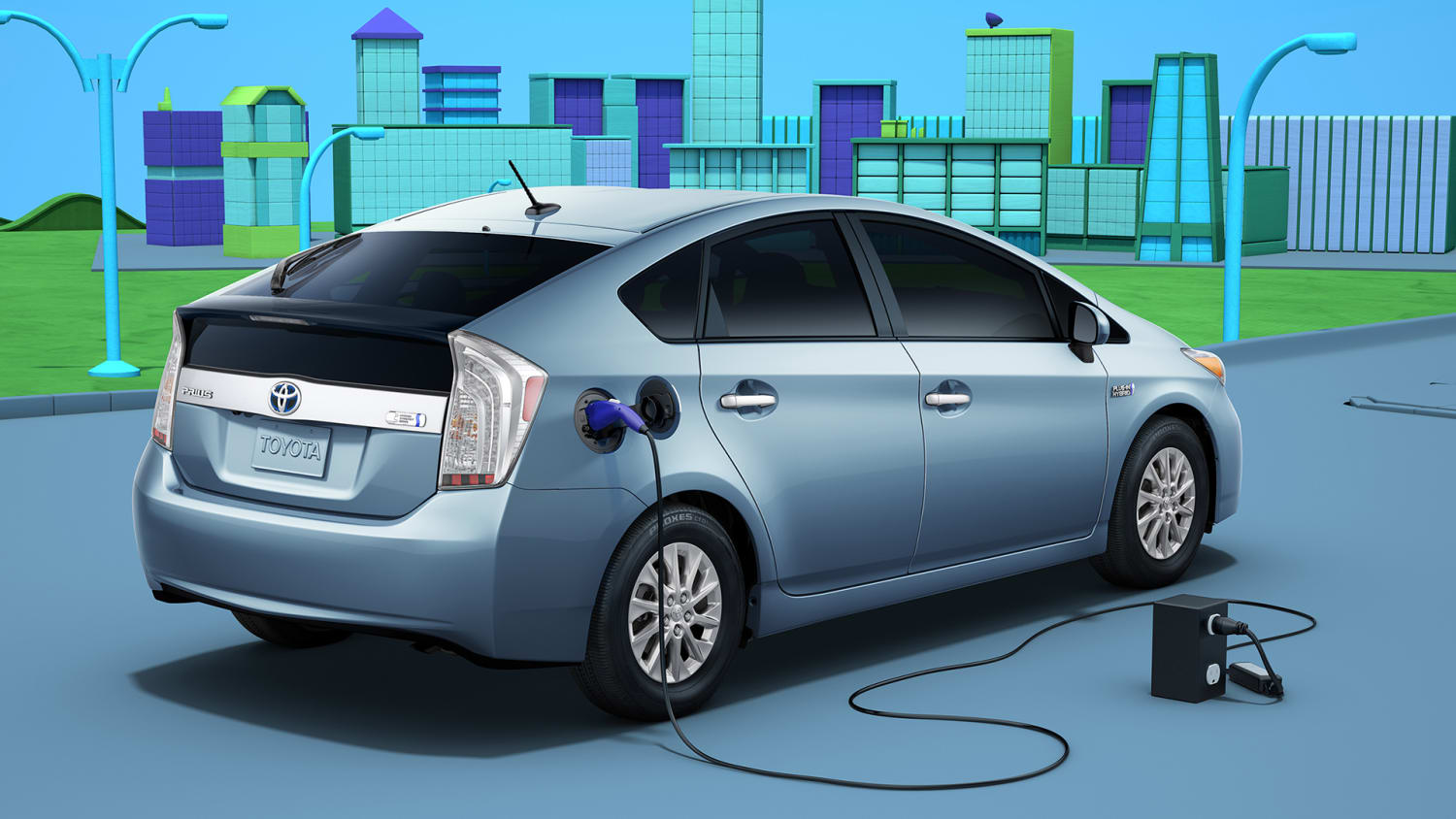1. What is a Hybrid Car?
A hybrid car is a vehicle that uses a combination of an internal combustion engine (ICE) and an electric motor to power the car. The idea behind hybrid technology is to leverage both sources of power for improved fuel efficiency and reduced emissions compared to traditional gasoline-powered vehicles. There are different types of hybrid vehicles, each offering varying levels of reliance on electric power.
2. How Do Hybrid Cars Work?
Hybrid vehicles use a combination of an electric motor and a gasoline engine, but unlike fully electric cars, they don’t rely solely on electricity. The operation of a hybrid vehicle can vary depending on the specific hybrid system. Here’s how the basic components of a hybrid car work:
a. Gasoline Engine
The gasoline engine in a hybrid car is similar to that of a traditional internal combustion vehicle, providing power for the car when the electric motor alone isn’t enough, such as during high-speed driving or when the battery charge is low.
b. Electric Motor
The electric motor in a hybrid car works in conjunction with the gasoline engine. It can power the car on its own at lower speeds, like in stop-and-go traffic or during low-load driving. The electric motor can also assist the gasoline engine when more power is needed, improving overall efficiency.
c. Battery Pack
Hybrid vehicles use a high-voltage battery to store energy that powers the electric motor. The battery is charged through regenerative braking (where energy is captured when the vehicle slows down) and from the gasoline engine. The battery’s size in a hybrid car is typically smaller than that in fully electric vehicles because hybrids rely more on their gasoline engine for power.
d. Regenerative Braking System
One of the key features of hybrid cars is their regenerative braking system. Instead of using traditional braking to stop the vehicle, which wastes energy, regenerative braking captures the energy that would otherwise be lost and converts it into electricity, which is then stored in the battery for later use.
3. Types of Hybrid Cars
There are different types of hybrid vehicles based on their design and how they utilize electric power:
a. Full Hybrids (HEVs)
Full sock itforward.com, also known as parallel hybrids, can run on either the electric motor, the gasoline engine, or both simultaneously. These vehicles use both power sources to provide optimal performance and fuel efficiency, depending on driving conditions.
Examples: Toyota Prius, Ford Fusion Hybrid, Honda Insight
b. Plug-in Hybrid Electric Vehicles (PHEVs)
Plug-in hybrid vehicles combine the best of both worlds, offering a larger battery that can be charged from an external power source (such as a charging station or home outlet). These vehicles can drive on electric power alone for a certain range, after which the gasoline engine kicks in.
Examples: Toyota Prius Prime, Chevrolet Volt, Ford Escape Plug-in Hybrid
c. Mild Hybrids
Mild hybrids are not capable of driving solely on electric power. Instead, the electric motor provides additional power to assist the gasoline engine during acceleration, helping improve fuel efficiency. The battery is smaller than in full hybrids, and the electric motor mainly acts as a support system to reduce fuel consumption.
Examples: Honda Civic Hybrid, Mazda3 Hybrid
4. Benefits of Hybrid Cars
Hybrid cars offer a range of advantages, particularly for those looking to reduce their carbon footprint, save money on fuel, and enjoy a smoother driving experience. Below are some of the key benefits:
a. Improved Fuel Efficiency
One of the most significant benefits of hybrid cars is their fuel efficiency. By using an electric motor in combination with a gasoline engine, hybrids can achieve better mileage than traditional vehicles. Many hybrids can achieve fuel economy ratings of 40-60 miles per gallon (MPG) or more, depending on the model and driving conditions.
b. Reduced Emissions
Since hybrid cars use less gasoline and can operate on electric power for shorter trips, they emit fewer pollutants than conventional vehicles. This helps reduce the vehicle’s overall environmental impact, contributing to better air quality and lower greenhouse gas emissions.
c. Lower Operating Costs
Hybrid vehicles are more cost-effective to operate compared to traditional vehicles, thanks to their higher fuel efficiency and lower fuel consumption. Additionally, hybrids generally require less maintenance because the electric motor reduces the load on the gasoline engine, resulting in less wear and tear over time.
d. Regenerative Braking
The regenerative braking system in hybrid cars helps recharge the battery, further increasing fuel efficiency by capturing energy that would otherwise be lost during braking. This reduces reliance on the gasoline engine and enhances the overall energy efficiency of the vehicle.
e. Government Incentives
Many governments around the world offer tax incentives, rebates, or subsidies for hybrid vehicle buyers as part of their efforts to reduce greenhouse gas emissions and promote clean energy technologies. These incentives can help offset the higher upfront cost of hybrid vehicles.
5. Challenges of Hybrid Cars
Despite their many advantages, hybrid cars do face some challenges, which may impact the decision of some consumers:
a. Higher Initial Purchase Price
Hybrid vehicles often have a higher initial cost compared to conventional cars due to the additional technology and dual powertrain systems. However, the difference in cost is typically recouped over time through fuel savings and reduced maintenance costs.
b. Battery Replacement Costs
The battery in a hybrid vehicle will eventually need to be replaced, typically after 8-10 years of use, depending on driving conditions and how the vehicle is maintained. While hybrid batteries are designed to last, replacing them can be costly.
c. Limited Electric Range in Full Hybrids
Full hybrid vehicles, while fuel-efficient, cannot be driven solely on electric power for long distances. For those looking for a longer all-electric range, plug-in hybrid electric vehicles (PHEVs) may be a better option.
d. Complex Technology
Hybrid vehicles have more complex systems, combining an internal combustion engine with an electric motor and a battery. This complexity can make repairs and maintenance more expensive compared to traditional vehicles, especially if specialized parts are required.
6. The Future of Hybrid Cars
The future of hybrid vehicles looks promising, especially as automakers continue to innovate and improve hybrid technology. Here’s a look at what we can expect in the coming years:
a. Improved Battery Technology
With advancements in battery technology, hybrid cars will likely become even more efficient, offering longer electric-only ranges and reducing the need for frequent gasoline engine use.
b. Increased Availability and Choices
As hybrid cars become more mainstream, automakers are expected to offer a wider variety of hybrid models in different segments, from compact cars to SUVs and trucks. This will provide consumers with more options to choose from based on their specific needs.
c. Better Integration with Renewable Energy
As renewable energy sources like solar and wind continue to grow, hybrid cars will increasingly be charged with clean energy, further reducing their environmental impact. Some manufacturers are already offering solar-panel roofs to help recharge hybrid car batteries.
Conclusion
Hybrid cars are a great option for drivers looking to reduce their carbon footprint without compromising on the performance, range, or convenience of a traditional gasoline-powered vehicle. With the combination of fuel efficiency, lower emissions, and reduced operating costs, hybrid vehicles provide a balanced solution for those who want to make a positive impact on the environment while still enjoying the benefits of conventional car ownership.
As hybrid technology continues to evolve, and as automakers push for more sustainable transportation options, hybrid cars will remain an essential part of the future of mobility.



:max_bytes(150000):strip_icc()/GettyImages-1328171458-5b2c06f6aaf241388c8718208fb65540.jpg)